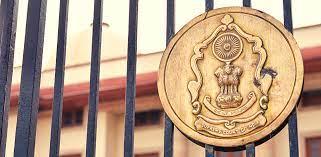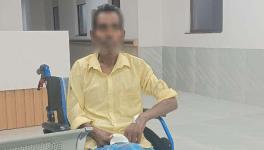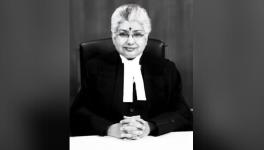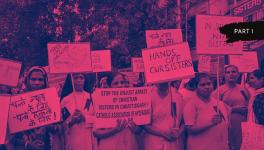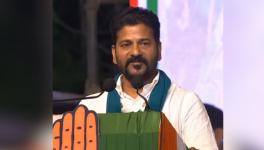The Supreme Court, on April 29, said that without practical training, there cannot be any doctor who is expected to take care of the citizens of the country. Based on this reasoning, the court directed the National Medical Commission [NMC] to frame a scheme for clinical training of those students enrolled in foreign universities abroad, that had to return to India during the pandemic, without completing their mandatory clinical training physically. The NMC opposed online clinical training, as claimed by some students as being adequate, on the ground that it would dilute standards.
A division bench of Justices Hemant Gupta and V. Ramasubramanian was examining whether a degree granted by a foreign institute without clinical training is binding on the National Medical Council and whether such a student can be provisionally registered.
After qualifying for the eligibility test as per the Eligibility Requirement for Taking Admission in an Undergraduate Medical Course in a Foreign Medical Institution Regulations, 2002, the respondents joined medical colleges in the People’s Republic of China. The students completed nine semesters of their academic course, including clinical training.
However, due to the outbreak of the COVID-19 pandemic, the clinical training for the subjects of Ophthalmology, Otorhinolaryngology and Nuclear Medicine in their tenth semester was done online and consequently, they were granted degrees of Bachelor of Medicine & Bachelor of Surgery (MBBS) after qualifying in all the subjects as per the teaching plan till May 2020 by the foreign institute.
Later, a few of one of the respondents’ fellow students were granted provisional registration by the Tamil Nadu Medical Council but she was declined the same. This led to petitions being filed before the Madras High Court.
By way of an order, the high court directed the Tamil Nadu Medical Council to provisionally register those petitioners who submit their applications and further, permit them to undergo the Compulsory Rotatory Residential Internship. By way of an appeal, the NMC moved the Supreme Court:
NMC submitted the following during the hearing:
- In terms of the statutory regulations, the student must study the medical course in the same institute located abroad for the “entire duration”.
- The dates of the semester and the date of departure of students from China shows that the students had not completed the ninth semester in part and tenth semester completely; therefore, the students are not eligible for provisional registration to undergo one-year internship to be eligible for registration as a professional under the Indian Medical Council Act, 1956.
- Clinical training cannot be imparted through online mode as it is the actual training involving diagnosis and interactions with the patients. There cannot be any online clinical training that will satisfy the requisite condition of the Screening Regulations.
What the court observed
The Supreme Court observed that NMC is not bound to grant provisional registration to the students who had not completed the entire duration of the course from a foreign institute, including clinical training.
“No doubt, the pandemic has thrown new challenges to the entire world including the students but granting provisional registration to complete internship to a student who has not undergone clinical training would be compromising with the health of the citizens of any country and the health infrastructure at large.”
The court also held that the grant of degrees to the Indian students has no corresponding obligation that such students actually practice medicine in those countries where they complete their education. The bench observed:
“The students had taken admission in medical colleges outside India for the reason that they could not get admission in the medical colleges in India. China alone has a number of Institutes offering medical courses conducted in English language. The Act and the Screening Regulations are framed in such a way that the course completed by the students is treated to be valid in India provided that the medical qualification is recognised for enrolment of the medical practitioner in that country. Obviously, none of the Indian students are going to practice medicine in the foreign country, therefore, the grant of degree to the Indian students has no corresponding obligation that such students actually practice medicine in that country.”
Regarding the students’ claim that they have completed clinical training through online mode, the court noted that in Orissa Lift Irrigation Corp. Ltd. vs. Rabi Sankar Patro & Ors. (2017) wherein the degree in the discipline of engineering was being conferred by online method as part of distance education course, it was observed that ‘practicals’ form the backbone of such education, which is hands-on approach involving actual application of principles taught in theory. The bench held:
“[W]ithout practical training, there cannot be any Doctor who is expected to take care of the citizens of the country. Hence, the decision of the appellant not to grant provisional registration cannot be said to be arbitrary.”
The bench also took exception to the high court’s stand that opined that an internship for a period of two months, in the place of three months, would suffice for provisional registration apart from the 12 months of internship.
The bench observed: “The Courts are not experts in deciding an academic curriculum or the requirement of the clinical training which may be required to be satisfied by the students.”
Though this is the case, the court was of the view that young talent could not be wasted. And so, the court issued the following directions to alleviate the pandemic-related problems faced by students with foreign medical degrees:
- NMC should frame a scheme as a one-time measure within two months to allow students who have not actually completed clinical training to undergo clinical training in India in the medical colleges which may be identified by the appellant for a limited duration as may be specified by the appellant, on such charges which the appellant determines.
- It would be open for NMC to test the candidates in the scheme so framed in the manner within the next one month, which it considers appropriate as to satisfy that such students are sufficiently trained to be provisionally registered to complete an internship for 12 months.









